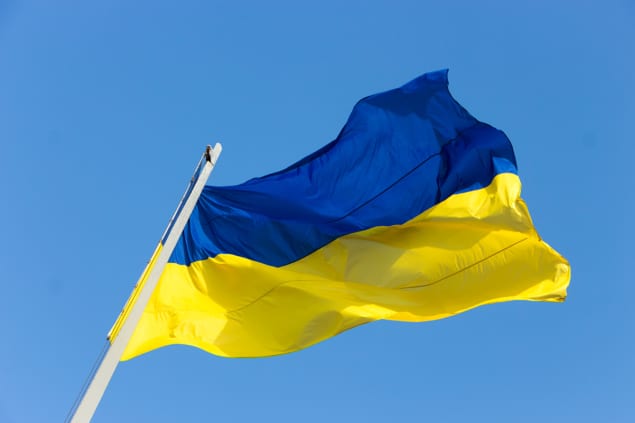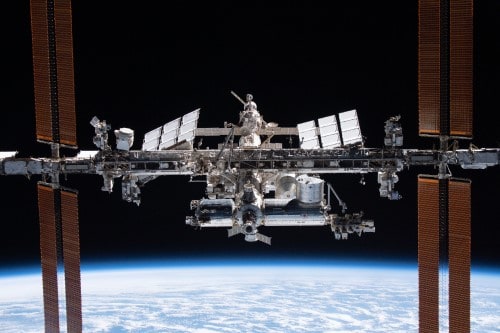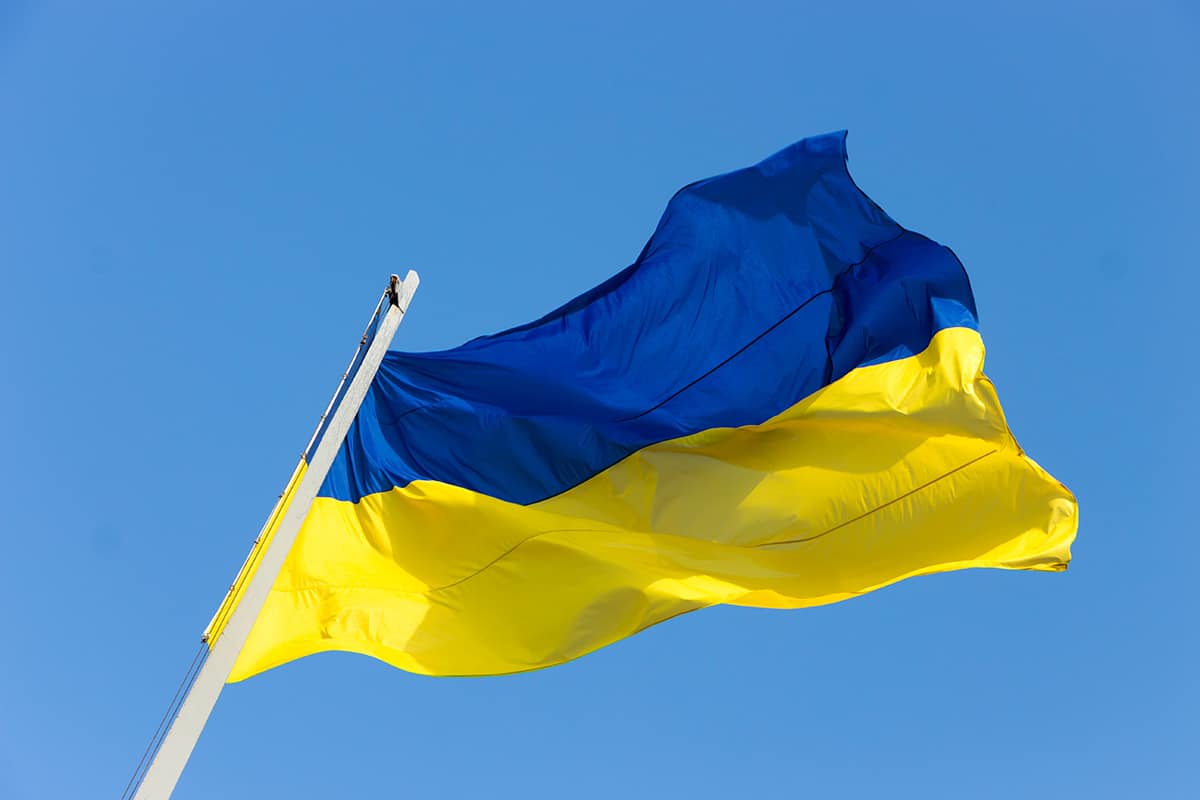
Physics World is providing regular updates on the response of the physics community to the unfolding Russian invasion of Ukraine and how international collaborations and projects in Europe and beyond are affected. See previous updates here.
05/03/2022:
● The Breakthrough Prize Foundation, which was inaugurated in 2012 by the Israeli-Russian venture-capitalist Yuri Milner, says it will make an emergency donation of $3m towards an international relief organisation that is helping victims of the conflict. “Stephen Hawking was convinced that humans must gain control over our aggressive instincts in order to survive,” the statement notes. “We owe it to ourselves, and the whole planet, to embrace our highest qualities.”
Yet the notice, which was signed by S. Pete Worden, chairman of the Breakthrough Prize Foundation, was met with dismay by some. The theoretical physicist Ed Witten from the Institute of Advanced Study at Princeton University, who is a member of the selection committee for the Breakthrough Prize in Fundamental Physics, said it was “disappointingly vapid”.
● Some 58 Breakthrough laureates, which include Witten, Alan Guth and Kip Thorne, came out with their own open letter, stating that they have watched Russia’s “unprovoked attack with horror”. “President Putin’s actions are cold-blooded, senseless, and entirely unjustified, violating both international law and the fundamental human rights of the Ukrainian people,” the laureates write. “We stand in admiration of the many Russians, inside and outside the country, who have spoken out against this evil, including scientists, writers, and people from all walks of life. Many have done so at great personal risk, and we commend them for their courage”. The prize winners also note their profound admiration for the “bravery and sacrifice [of the Ukrainian people], which serve as a beacon to all who struggle for democratic self-determination and freedom.”
04/03/2022:
● The European Commission has suspended co-operation with Russia on research and innovation. It says it will “not conclude any new contracts nor any new agreements” with Russian organizations under the €96bn Horizon Europe programme and is suspending payments to Russian entities under existing contracts. “All ongoing projects, in which Russian research organizations are participating, are being reviewed,” the statement notes.
● The International Atomic Energy Agency (IAEA) says that Russian forces have taken control of the Zaporizhzhia Nuclear Power Plant, which is located in the south of the country. Zaporizhzhia is the largest nuclear power plant in Ukraine, with six reactor units. A projectile had hit a training building near one of the plant’s reactor units overnight, which caused a fire that was later extinguished.
The IAEA says that regular staff are still operating the plant and there has been no release of radioactive material but that operators note that the situation remains “very challenging” as they are not able to access the whole site. “I’m extremely concerned about the situation at Zaporizhzhia and what happened there during the night,” says IAEA director general Rafael Mario Gross. “Firing shells in the area of a nuclear power plant violates the fundamental principle that the physical integrity of nuclear facilities must be maintained and kept safe at all time.”
● Over 150 Russian scientists who work on experiments at the CERN particle-physics lab near Geneva have penned an open letter expressing their “sorrow and regret” about the situation in Ukraine. “We stand against the military actions initiated in Ukraine by the authorities of Russian Federation,” they write. “We stand strongly for resolving the conflict through diplomacy and negotiations as the only appropriate way.”
● In a statement, the American Physical Society says that it condemns the invasion of Ukraine and that it is “gravely concerned” about its impact. “APS stands in solidarity with the Ukrainian physics community and all people whose safety has been jeopardized, and whose homes, families and careers have been disrupted by the violence,” the statement notes. “APS calls for a halt to hostilities and a peaceful end to the crisis.”
03/03/2022:
● More than 100 Nobel laureates have come together to issue a declaration calling for peace following the “war emanating from Russian soil and the explicit threat of nuclear weapons”. “Findings and technologies from scientific research and development have made humans the greatest shaping force in the Earth’s system over the last century,” the declaration states. “The discovery of nuclear fission created the basis for the construction of nuclear weapons of destruction. Their current volume has the potential to make the Earth uninhabitable for humans and to wipe out human civilization. Such weapons must therefore never be used!”
The Nobel laureates, which include the physicists Steven Chu and Andre Geim, call on governments and business leaders to “use scientific knowledge and technologies responsibly and with awareness” for their long-term consequences. “Only in this way can human civilization continue to develop in a respectful manner towards nature and the Earth’s system in the future.” They end by calling on Russian president Vladimir Putin “to respect the agreements under international law, to recall his armed forces, to start negotiations and to establish peace”.
● In a statement, the UK’s Royal Astronomical Society says it “deeply regrets the illegal military invasion of Ukraine” adding that they will be “exploring avenues for supporting our fellow scientists who are fleeing the war zone with government agencies and our sister societies”. The UK’s Institute of Physics, meanwhile, also condemns Russia’s actions. “Physics is a global endeavour, and we continue to support academic freedom of scientists everywhere,” the statement notes. “We hope for a quick resolution of the crisis to bring an end to its devastating impacts on the people of Ukraine.”
● Russian space agency Roscosmos says it will “not cooperate with Germany on joint experiments” on the Russian segment of the International Space Station in response to Germany halting scientific collaborations with Russia. Roscosmos also notes that Russia’s space programme will be “adjusted against the backdrop of sanctions” with the priority being on the “creation of satellites in the interests of defence”.
● The Ukrainian Physical Society has approved a European Physical Society (EPS) statement that “strongly” condemns Russia’s invasion of Ukraine. “The EPS calls on the entire scientific community and all citizens working in physics and beyond, to be uncompromising in their protest and to take active measures against the ongoing violence of the Russian army in Ukraine,” the statement notes adding that the EPS “sympathizes” with Russian physicists who “refute the aggression of their government and suffer similarly from not being able to freely express their disagreement in their own homeland”. The EPS states that they will suspend all “joint actions co-sponsored with the Russian State” and that further measures will be “considered and acted” by the next EPS council meeting, which is scheduled for June in Paris.
02/03/2022:
● The national scientific academies of the “group of seven” nations have issued a joint statement condemning Russia’s “unprovoked attack” on Ukraine, which they say is a “blatant violation of international law and of core values of humanity”. The academies, which include the UK’s Royal Society and the US National Academy of Sciences, state that Russia’s invasion is “an assault on the fundamental principles of freedom, democracy and self-determination, which provide the basis for academic freedom and opportunities for scientific exchange and cooperation”. The group add that they “stand in solidarity” with researchers in Ukraine and “acknowledge the Russian scientists and citizens who are ashamed of this attack and speak out against the war”.
● Dmitry Rogozin, head of the Russian space agency Roscosmos, took to Twitter today to say that the agency will refuse to launch the next batch of OneWeb satellites — scheduled for Friday — unless the company meets demands that the network not be used for military purposes and the UK government sells its 20% stake in the firm. The 36 satellites are set to launch on a Soyuz rocket from the Baikonur Cosmodrome in Kazakhstan, with further launches planned later in the year. OneWeb is a UK-based firm that already has hundreds of communications satellites in orbit as part of the OneWeb “mega constellation”.
● The presidents of several astronomy societies from around the world — including Roger Davies, president of the European Astronomical Society and Debra Elmegreen, president of the International Astronomical Union — have raised their “deep concern” for Ukraine and the entire region. In a joint statement, they say they have been receiving reports of the “dire circumstances” that many colleagues are experiencing in Ukraine. “Their freedom, safety and even their lives are under threat,” the statement notes. “We are deeply concerned for the Ukrainian community as well as for the entire region.” They encourage society members to “help wherever possible in this difficult time for Ukraine”.
● The Dutch Research Council (NWO) says it is considering “appropriate measures” in response to Russia’s invasion of Ukraine, which will be taken in consultation with government departments. The NWO states that it is also “itemising all ongoing cooperations and planned projects” with Russian scientific institutions. “NWO wants to keep providing a safe and inclusive work environment for employees from Ukraine and for Russian colleagues, who are not in any way part of or involved in the acts of war,” the statement adds.
01/03/2022:
● Over 2500 graduates, staff and students from the Moscow Institute of Physics and Technology have signed an open letter opposing the war in Ukraine. “We have been taught for many years that our institute is a brotherhood in which physicists come to each other’s aid. Now is just such a moment,” says the letter. “We are sure that MIPT does not support this senseless and outrageous war.”
The letter states that it “become[s] an example” for other universities and organizations in Russia to publicly condemn the actions of the country’s leadership. “There is no rational justification for this war,” the letter adds. “The consequences of a military invasion are catastrophic for Ukraine, and for Russia, and, possibly, for the whole world.”

Russian scientists condemn Ukraine invasion as international projects and meetings thrown into doubt
● Some 11 quantum physicists have stepped down from the international advisory board of the Russian Quantum Center – a private research facility in Skolkovo near Moscow. They include Russian physicist Mikhail Lukin from Harvard University as well as Rainer Blatt from the University of Innsbruck and Artur Ekert from the University of Oxford.
“Today we are very sad,” the letter states. “We need to count on the fact that dialogue prevails over violence, and instead we see war in Ukraine. Under these circumstances we do not want our advice and expertise to benefit directly or indirectly any government that is waging war.” The physicists add that they “strongly hope that in the future the situation will be resolved so that we will be able to work with you again”.
● A statement by Martin Stratmann, president of the Max Planck Society, says that the organization “strongly condemns the war against Ukraine”, adding that it is a “breach of international law and a crime against humanity”. Stratmann announced that the society will provide local scholarship programmes “at short notice” to enable Ukrainian scientists associated with Max Planck Institutes to continue their work.
“I hope that in this way we can make at least a small contribution within our means to somewhat alleviate their suffering, as well as that of their families,” the statement adds.
